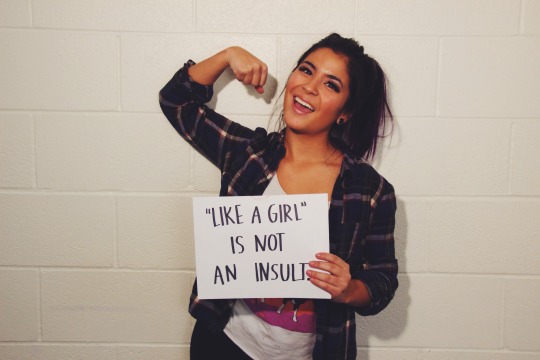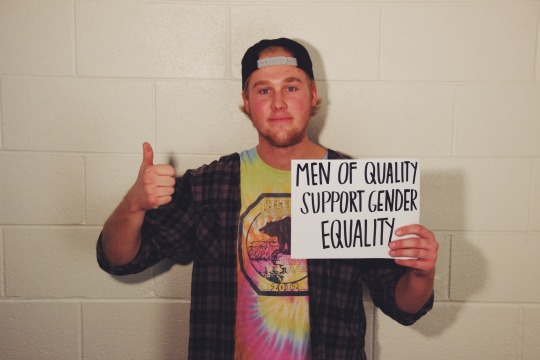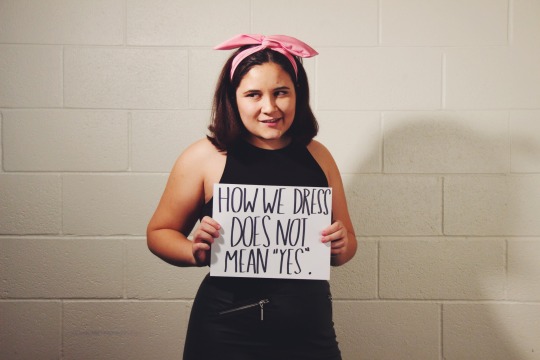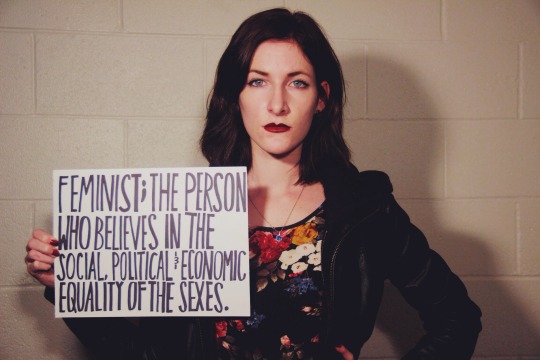An online guide to interrupting oppression. Interruptions are connections, not corrections! [based on the teachings and endless wisdom of Sally Ann Eck]
Don't wanna be here? Send us removal request.
Quote
In the context of call-out culture, it is easy to forget that the individual we are calling out is a human being, and that different human beings in different social locations will be receptive to different strategies for learning and growing. For instance, most call-outs I have witnessed immediately render anyone who has committed a perceived wrong as an outsider to the community. One action becomes a reason to pass judgment on someone’s entire being, as if there is no difference between a community member or friend and a random stranger walking down the street (who is of course also someone’s friend). Call-out culture can end up mirroring what the prison industrial complex teaches us about crime and punishment: to banish and dispose of individuals rather than to engage with them as people with complicated stories and histories. […] Humour often plays a role in call-out culture and by drawing attention to this I am not saying that wit has no place in undermining oppression; humour can be one of the most useful tools available to oppressed people. But when people are reduced to their identities of privilege (as white, cisgender, male, etc.) and mocked as such, it means we’re treating each other as if our individual social locations stand in for the total systems those parts of our identities represent. Individuals become synonymous with systems of oppression, and this can turn systemic analysis into moral judgment. Too often, when it comes to being called out, narrow definitions of a person’s identity count for everything.
A Note on Call-Out Culture – Briarpatch Magazine (via brutereason)
107 notes
·
View notes
Text
things to say when someone tells u their gender/pronouns! !!:
- okay! - right on! - let me know if i mess up/dont let me mess up! - anything else i should know??
things to NOT EVER SAY when someone tells u their gender/pronouns!!!:
- i know you as *this thing* so ur *this thing* to me - you cant be mad at me if i dont get it perfect - i use *gender specific pet name* with everyone so deal with it - ugh, whatever
3K notes
·
View notes
Quote
And as a recovering grammar snob myself – please don’t start about how I opened this article with a dangling preposition; it’s still bothering me – I understand the knee-jerk reaction to improper usage and mechanics. I’m an editor, for God’s sake; I eat, sleep, and breathe correct comma placement. But there’s a difference between understanding standard grammar and demanding it, between believing there’s a time and a place for so-called “proper” English and ridiculing anyone who steps outside of what you deem “acceptable.” There’s a difference between appreciating language and being a snob. And the last place that we need grammar snobbery is in social justice movements. And not just because getting hung up on the correct use of homonyms or subject-predicate agreement is distracting to the job at hand, but also because purporting one form of English as elite is inherently oppressive. … As educated (and – okay – snarky) activists, we’re quick to respond to “According to the dictionary” arguments with “Who wrote the dictionary, though?” We understand that a reference guide created by a white supremacist, heteropatriarchal system does nothing but uphold that status quo. Similarly, we have to use that line of thinking when talking about the English language: Who created the rules? And who benefits from them? As per usual, what this comes down to is an issue of privilege (of course!). In fact, grammar snobbery comes down to an intersection of multiple privileges. Let me count the ways.
Why Grammar Snobbery Has No Place in the Movement
The whole thing is very much worth the read, but here’s a list of the privileges from the article that intersect with ideas of “correct” grammar:
1. Educational Privilege 2. Class Privilege 3. Race��Privilege 4. Native Language Privilege 5. Ability Privilege
Also relevant is the idea of literacy privilege.
(via allthingslinguistic)
5K notes
·
View notes
Photo

Can’t hear the patriarchy over the sound of a sweet bass drop right
76K notes
·
View notes
Link
A plea to the good guys in my world to stop being so defensive and listen to other people's experiences
"White male Facebook homies, you can do this, I believe in you. Be your best: your best brother, partner, parent, friend. Be open to being flayed, hurt, embarrassed, wrong, and stay open. Stay compassionate with yourself and with those around you. Start with holding “Just because it doesn’t happen to me doesn’t mean it’s not happening,” and go from there."
This article makes some excellent points that can easily translate into positive, compassionate interruptions.
3 notes
·
View notes
Photo










The 39 most important feminist moments in 2014
In 1998, TIME Magazine declared feminism dead. Nearly 15 years later, it wondered if instead, perhaps feminism should be banned. Constantly on attack from all sides, feminism has spent the past few decades proving its importance and relevance over and over and over again. If there’s one thing history has taught us, it’s that the backlash against feminism will always be a measure of our success. That’s the thing with progress — it is far too often perceived as a threat by those who benefit from the status quo.
Indeed, as we head into December, it’s clear that the year 2014 was a historic one for feminism. Across the Internet and the world, women stood up for their rights, challenged stereotypes, fought for recognition and took control of the dialogue.
The following is a list of some of the most iconic feminist moments this year.
317K notes
·
View notes
Photo









feminist (2014); when you spend so much time with the folks here at tumblr dot com, i think you kind of forget that in the real world, feminism is still regarded as extreme and has this weird bad connotation to it. we talk about classic feminist literature in my lectures and i’m shocked by how many people disagree with feminist ideals. every single person in my life has this internalized misogyny that they aren’t even aware of. that’s why, for my final photography project, i decided to cover feminism. i utilized an institutional-type wall and two simple continuous profoto lights to create a man-on-the-street vibe and recruited some of the most passionate feminists i know to pose with signs. it’s a simple idea for those of us who are so passionate about feminism, but i’m hoping it will help open the eyes of my classmates who never give these ideas a second thought.
311K notes
·
View notes
Photo

75K notes
·
View notes
Text
Did you know?
278K notes
·
View notes
Text
Oppressions
There are three main components to oppressions:
Power imbalance
Institutionalized hegemony (in family systems, education, religion, government, media, the economy, and the health system, for a few examples)
National consciousness
Oppressions can be broken down between agents (oppressors) and targets (those being oppressed). Most commonly, agents oppress targets. However, agents can also oppress other agents, and targets can oppress other targets - this is referred to as lateral oppression. Finally, targets can slight agents, but because of the institutional power in play this is not considered oppression - instead it's potential discrimination or prejudice, which are not inherently oppression.
Oppressions can also be overt (open prejudice, offensive language, etc.) or covert. Covert oppression can be microaggressions, changing structures, or doing work to obscure oppressive systems.
3 notes
·
View notes
Text
Trigger Work
What is a trigger? A trigger is a word or phrase that someone says or does that makes us feel diminished, offended, threatened, stereotyped, discounted, or attacked. They often stimulate an emotional response because they tap into our unconscious or subconscious belief or value systems or our lived experiences. Triggers threaten us psychologically or emotionally without necessarily threatening physical safety.
We respond to triggers in a variety of ways, some helpful and others not. It's important when responding to triggers to take care of ourselves and then decide how to respond most effectively.
Here is an (incomplete) list of possible responses to triggers:
Leave: we physically remove ourselves from the triggering situation. We may choose to let the group know or not know.
Avoidance: We avoid future encounters with and withdraw emotionally from people or situations that trigger us.
Silence: We do not respond to the triggering situation though we feel upset by it. We endure without saying or doing anything.
Release: We notice the trigger, but do not take it in. We choose to let it go and we do not feel the need to respond.
Attack: We respond with intentions to hurt whoever has triggered us. This can be verbal, emotional, or perhaps even physical in intent even if not carried out.
Internalization: We take in the content of the trigger. We believe it to be true and make it our own reality.
Rationalization: We convince ourselves that we misinterpreted the trigger, that the intention was not to hurt us, or that we are overreacting so that we can avoid saying anything about the trigger.
Confusion: We feel upset but are not clear about why we feel that way. We know we feel angry, hurt, or offended. We just don't know what to say or do about it. We can communicate our confusion or we can choose to keep it to ourselves.
Shock: We are caught off guard, unprepared to be triggered by this person or the situation, and have a difficult time responding.
Name: We 'name' and identify what is upsetting us to the triggering person or organization. The naming could be a way of taking control of the situation; a way to put the trigger out there for us to examine, individually or as a group.
Confront: We name the trigger and demand that the offending behavior or policy be changed.
Surprise: We respond to the trigger in an unexpected way. For example, we react with constructive humor that names a trigger and makes people laugh (check to see whether the humor is 'avoidance').
Strategize: We work with others to develop a programmatic or political intervention to address the trigger in a larger context. This may also prove useful in an office context, or even an intergroup context.
Misinterpretation: We are feeling on guard and expect to be triggered. This raises our antennae and we are then predisposed to hearing things differently from what is actually said.
Discretion: Because of varying dynamics of the situation, (power differences, risk of physical violence/retribution, etc.) we decide that it is not in our best interest to respond to the trigger in that moment, and we choose to address it at a different time in another way.
4 notes
·
View notes
Text
Anatomy of an Interruption
The following are the steps one goes through when they notice oppression and begin an interruption:
Notice and identify. What is/are the oppression(s)? If you can, name it.
What is the value of doing the interruption? Weigh the odds and costs.
Assess your safety and discomfort. There are three tiers of safety to consider when doing interruptions: 1) economic - will interrupting cost you a job, livelihood, or your economic survival? 2) physical - will interrupting put your physical safety in jeopardy? 3) emotional/mental - are you mentally and emotionally sound enough to go through with the interruption? ** It's important to note that feeling uncomfortable or awkward does not equal feeling unsafe. Try to get familiar with the difference so that you can recognize it and make interruptions despite discomfort.
What is the relationship? Determine how valuable you consider the relationship and therefore how valuable interruptions are - is this your best friend, mother, or a stranger on the bus? The more value you place on the relationship, the more vital it is that you discuss the oppression with them and interrupt the behavior for the future.
Assess power dynamics. Two things need to be considered at this stage: what is your personal identity in the interaction (oppressor or oppressed?), and what is your positionality in comparison to the person being interrupted (teacher to student, child to parent, friend to friend?) Considering your position of power is important for selecting the best method of interruption.
What's next? Determine the best course of action, decide how to go about your interruption, and carry it out to the best of your ability.
0 notes
Text
Interruption Suggestions
replace the oppressive language with a less offensive word Example: "This is so lame! I can't believe we have to be at the airport at 5am." Interruption: "You're right, that is silly/absurd/crappy/etc."
acknowledge that the person you're interrupting might not have meant the term maliciously/didn't know about the word's origins and implications. Example: "I know it's really commonly used/widespread/not your intention, but 'bitch' is actually a sexist term."
discuss an instance when you were interrupted for using the term/a similar term, or when you realized it was offensive.
Let the person know that you understand that it's hard to eliminate such language, but that it's something you're constantly working on and you hope they'll do the same.
0 notes
Text
Allyship
Allies typically consist of members of the dominant group in some regard providing support to an oppressed group. Though many consider allyship a noun (as in, something you are definitively), it's important to think of ally as a verb - constant work and investment in both understanding one's own position and comprehending the perspectives of those who have been othered. It is important to always consider one's roles and the roles of others - even having a conversation about allyship with members of a subordinated group can recenter privilege and oppress further. This is one of the continued challenges of allyship.
Often, allies consider themselves so by talking to and working with one or a few specific members of the outside community. This runs the risk of tokenizing them and losing perspective. Allyship requires one to do their own research and work, outside of this single relationship, and it cannot be considered finished or completed until oppression is dismantled - meaning this endeavor is constant work, not an occasional dabble.
Things to consider while doing ally work:
Cumulative Impact - Targets of oppression have years of experiences built up surrounding their subordinated positions. This accumulation of negativity can make a strong impression, and needs to be accounted for and understood by allies, particularly if a target gets upset, angry, or aggravated during ally work.
Intent vs. Impact - Allies must be able to take responsibility for their actions; they must always be interruptible and accountable for their words and actions. If you are interrupted for oppressive behavior, be supportive, apologize, and ask about the impact of your behavior, regardless of your intent.
Distinguishing Behavior - Potential allies will likely be seen as just another member of the privileged group until they actively demonstrate their willingness and ability to be an ally. By using your position as a member of a dominant group to speak up and intervene, you distinguish yourself from the group that generally perpetuates isms and oppressions, both consciously and unconsciously.
Never Minimize - acknowledge the degree of feelings that others are experiencing; never try to minimize by claiming that oppressive language weren't intended to be hurtful, were meant as jokes, or were misunderstandings (these are only a few examples). Offer to listen to stories about past experiences without trying to immediately fix them; ask how you can be supportive or even whether they want to be supported by you at this time.
Common Ally Pitfalls (well-intentioned but minimizing responses):
"There must be a perfectly logical explanation..."
"Yeah, but..."
"I don't see it that way." (therefore, it doesn't really happen)
"That doesn't happen to me." (so it doesn't exist)
"I know someone who ___, and they don't agree with you..."
"It was just a joke..."
"Don't you think that..."
"You're overreacting/you're too sensitive..."
"They're a good person/they never meant to do that..."
"That was not my intent/you misunderstood me..."
Some helpful ally responses:
"That sounds really difficult. Do you want to talk more about that?"
"Your feelings matter and you matter."
"I can tell you are very upset. Let's talk more about this and see what we can come up with."
"I see you have been hurt by their actions. Let's brainstorm how we might resolve or talk to that person about that."
"I'm so sorry I hurt you."
2 notes
·
View notes


